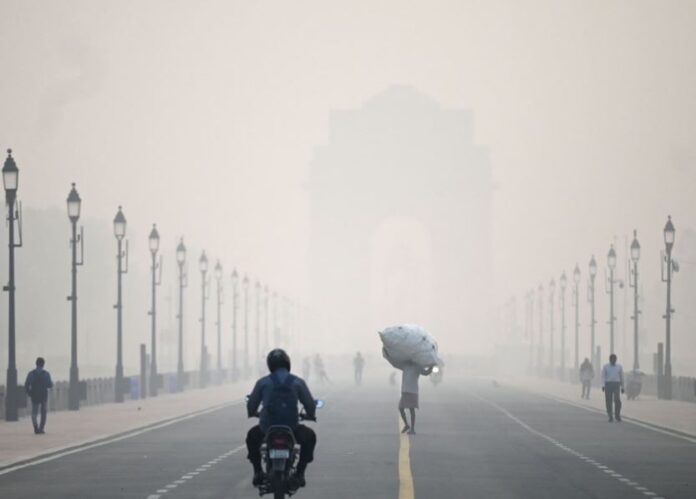A groundbreaking study has unveiled the shocking reality of air pollution in India, attributing nearly a quarter of all deaths in the country to this environmental hazard. The research, covering a decade from 2009 to 2019, indicates that air pollution was responsible for an alarming 16.6 million deaths.
The study highlighted severe levels of PM2.5, a type of fine particulate matter, with concentrations reaching up to 119 μg/m³ in some regions. This figure starkly contrasts with the World Health Organization’s recommended limit of just 5 μg/m³, underscoring a significant public health crisis.
Also Read: Scientists Propose $6 Billion Plan to Refreeze the Arctic
The data shows a direct correlation between air quality and mortality rates, with each additional 10 μg/m³ of PM2.5 linked to an 8.6% increase in mortality.
Experts have sharply criticized India’s current air quality standards as “weak” and are urgently calling for stricter regulations and enforcement to curb emissions. Without immediate and decisive action, they warn, this “silent killer” could continue to claim millions more lives.
The study’s findings have sparked a renewed demand for comprehensive policy changes to address this escalating public health emergency, emphasizing the need for both immediate intervention and long-term strategies to improve air quality across India.
Key Points:
- Air Pollution Impact: Nearly 25% of all deaths in India from 2009 to 2019 attributed to air pollution, totaling 16.6 million deaths.
- PM2.5 Levels: Concentrations of PM2.5 reached up to 119 μg/m³ in some areas, far exceeding the WHO’s guideline of 5 μg/m³.
- Mortality Correlation: Every 10 μg/m³ increase in PM2.5 levels associated with an 8.6% increase in mortality.
- Criticism of Standards: Experts label India’s air quality guidelines as “weak,” urging for tougher regulations.
- Call to Action: Immediate and stringent measures needed to reduce emissions to prevent further loss of life.



